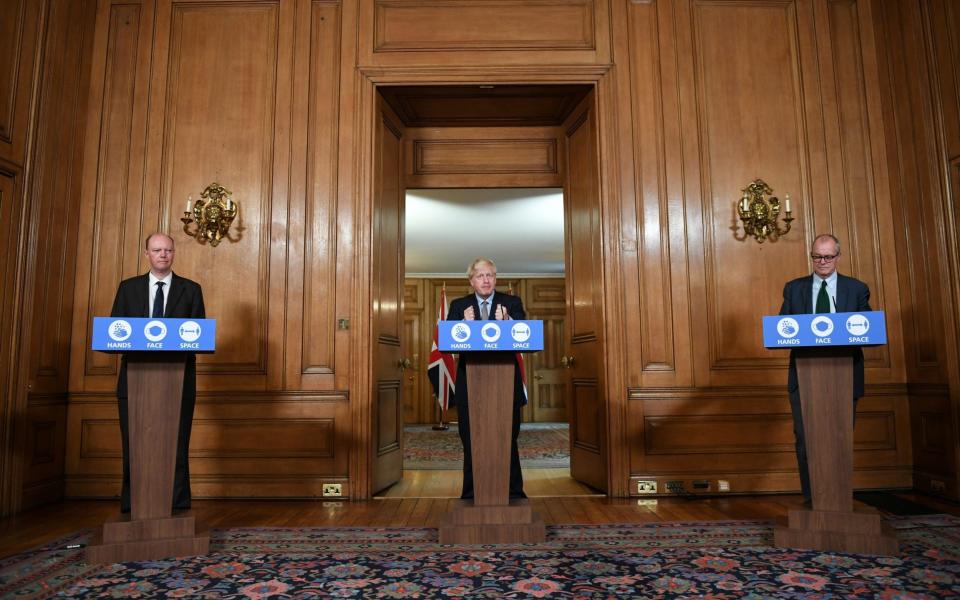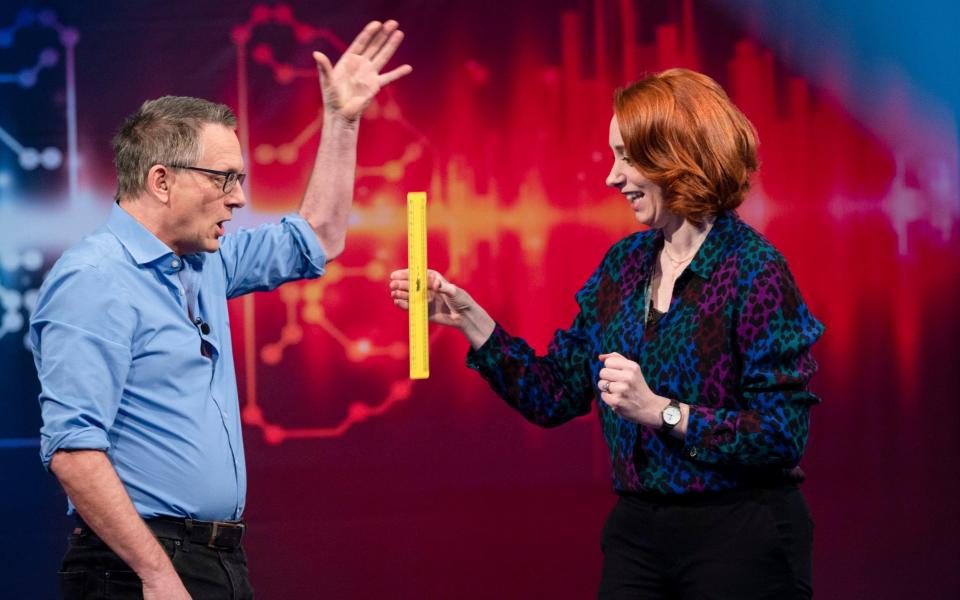Mathematician Hannah Fry on Covid briefings: ‘By focusing on numbers we can lose sight of people’

For most of her professional life, Dr Hannah Fry has dreamt of a day when mathematics hits the front pages. A day when scientists are treated like the public figures they should be; when Britain really cares about numbers; when the streets are abuzz with chatter about not just lies and damned lies, but also statistics…
Well, be careful what you wish for.
“It has been a strange year, in a lot of ways,” says Fry, 36, after a slightly despairing laugh. “All I do is try to get people to pay attention to numbers, now they’re paying attention for the most horrible reason ever.”
I tell her, quite truthfully, that Covid-19 has made me think about stats in more detail than any year since my GCSEs. Probably quite a bit more than that year, actually. Fry – who is quickly becoming the David Attenborough of maths, thanks to a slew of BBC programmes, as well as books, TED Talks and public lectures alongside academic work at University College, London – is sympathetic. “I think that’s the case for everyone.”
We meet outside a plush shopping complex in central London, and shiver in our coats. The arranged indoor option requires we wear masks. Based on all the available evidence, Fry reckons we’re probably better off out here without them.
So then, as the nation’s foremost communicator of impenetrable concepts, does she think Professor Chris Whitty and Sir Patrick Vallance have done a good job in their near-daily efforts to explain complex graphs and stats to us laypeople?
“Broadly, yes. It wasn’t an easy job. A good description of those press conferences was ‘number theatre’, because there are subtleties that require nuance to communicate, like false positives and herd immunity. Sometimes, the communication has been blunter than it should have been.”
She gives an example in the daily death toll. A lot of people assume that is the number of people who have died in the last 24 hours, “but it’s the number of deaths reported, so someone could have died months ago. Calling them ‘daily deaths’ masks an important nuance.”

In general, she thinks more mathematical models, analysing risk by predicting how things will spread with one option versus the other, would have been helpful. And Fry’s well-placed to ruminate on the coronavirus response. For a BBC documentary two years ago, she and a team of experts created a fictional pandemic, complete with superspreaders and a track and trace app, to see what might happen if – or rather when – a deadly virus arrived.
“At the time, the Government had a risk register, and an influenza pandemic was number one. So all our simulation, our action plans, were based on influenza. I’m not an epidemiologist, but influenza and coronavirus differ in important ways – for example, in the number of people you’re likely to infect,” she says.
“This is just my opinion, but when Britain was like, ‘We’ve got this, we’ve got the best scientists in the world’, I think a lot of that confidence was based on influenza. And they were a bit slow to change over.”
Other errors are less forgivable, like last week’s revelation that a basic Microsoft Excel mistake led to 16,000 virus cases going unreported. “Not great, is it? It’s not really what Excel’s for. I am sort of astonished they didn’t have someone designing the database from the off. And with concerns around data security these days, the idea it’s in an Excel spreadsheet feels… less than ideal.”
Broadly, though, as an academic she believes one of the greatest mistakes in the Government’s reactions has been a lack of “intellectual humility” counterbalancing pure brainpower.
“This year, we had the best scientific minds in a room, and it still wasn’t enough. You need that human element. I think what happened in New Zealand, where they said ‘There’s so much unknown, let’s just be risk-averse’, in the end, was the best possible thing to do. If you are totally focused on the numbers, you can lose sight of what’s best for people.”

On paper, it appears that countries with female leaders have approached the pandemic in a more successful and collaborative way; New Zealand, Germany, Taiwan and many Scandinavian nations are the evidence. Fry smiles.
“It’s difficult to draw conclusions but… it does look that way, doesn’t it?” Well, look at which leaders got it. “Exactly, if I look at this through my feminist-tinted glasses then I totally agree women are, in general, more capable of intellectual humility, and you can definitely say some leaders went for bravado, and brashness, and it didn’t work out so well.”
At home in London, neither Fry, her husband, nor their daughters, who are three and one (lockdown mainly involved “hiding in order to get any work done”), have had the virus, but she knows just how grim it can be from her friend, the geneticist and broadcaster Adam Rutherford, with whom she presents The Curious Cases of Rutherford & Fry on BBC Radio 4. Rutherford recently made a programme all about his gruelling case of Long Covid.
“He had it really badly. I texted him through it, then just on one morning the mood switched, and I knew it was very, very serious. It’s the main reason I don’t want it. Seeing Adam, this totally fit man in his early 40s, taken down so quickly. It’s scary.”
Fortunately Fry has plenty of other projects with which to distract herself. First up is a podcast, Whatever Next, in which her soothing tones (people tell her they listen to her audiobooks as ASMR to help them sleep, which she wishes also worked on her children) get us excited about technology to come.
Hosted with comedian Suzi Ruffell and in partnership with Samsung, Fry hopes it reverses the trend of “the future being seen as something worse than the past – be it climate change, AI taking our jobs, you’re being spied on… because there are lots of positive things.”

It sounds trademark, taking enormous topics and, using humour and everyday examples, making them engaging and relatable. If anything, the intellectual humility lacking in many world leaders is Fry’s superpower.
An academic by trade, she was a lecturer at UCL in 2015 when she decided to have a year of saying “yes” to everything. That led her to try stand-up comedy, which led to a TED Talk, then television work, and now here she is: one of the BBC’s leading science presenters, in an eminent stable with Attenborough, Brian Cox, et al.
Her next BBC project is all about the numbers around climate change, and how we can all make a difference. “I’ve become a lot more conscious, particularly about food, because now we’re not all flying, it’s the biggest change we can make. Starting with waste – like buying a loaf of bread when you’ve got half in the cupboard.”
Or having children, they say. ‘That’s been a genuine consideration when it comes to having another child. I mean, I’ve got two, so I don’t want to be greedy…”
It’s some responsibility, not only convincing the British public to care, but understand the science behind it all. Luckily, Fry has her formula down. I wonder, is she beginning to feel like a celebrity?
“Oh, no…” she says, “those are people who walk down red carpets, aren’t they?”
Not five minutes later, an enthusiastic man with an anorak and an indeterminable European accent shuffles up to our table. “You are one of my absolute heroes,” he beams. “I have followed your stuff, amazing! Incredible brain!”
Fry thanks him, and looks briefly sheepish. Science has dominated the front pages for maudlin reasons this year, but maths, it seems, might just have found its star.
Whatever Next? is available via ACAST on all major podcast platforms


